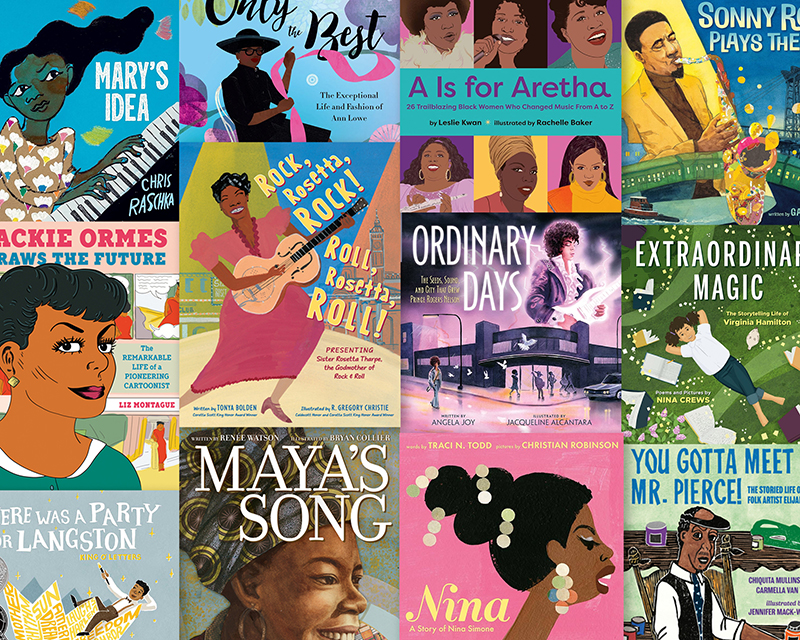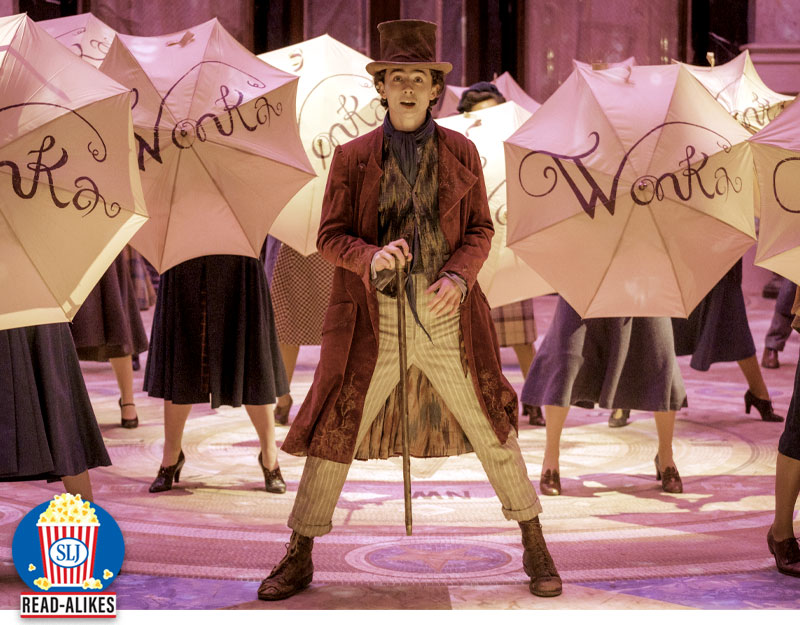Review of the Day: The Riverman by Aaron Starmer
 The Riverman
The Riverman
By Aaron Starmer
Farrar Straus & Giroux (an imprint of Macmillan)
$15.99
ISBN: 978-0-374-36309-3
Ages 11 and up
On shelves March 18th
When a book has worked its way into your cranium and is making a home for itself within the darker recesses of your very soul, the natural inclination is to talk to somebody about it. And when that book was ostensibly written for kids, all the more reason. That’s the problem with my job as a children’s librarian. Sometimes I’m the only person I know who has read one book or another and I have to wait patiently in the interim. Usually this isn’t a problem, but once in a while a novel like The Riverman comes along and it’s all that I can do to keep myself from forcing it into the hands of family and friends repeatedly with desperate cries of “Read this, PLEASE!” emanating from my lips. Reviewing is the best possible therapy in these cases, so buckle up, kids. What we’re dealing with here is a book of contradictions worth noting and reading and loving and hating by turns. Mature stuff, to say the least.
What do you do when the girl next door asks you to write her biography? If you’re Alistair Cleary you’re initially quite flattered. Then, as you hear her story, that sense of pride may begin to fade. When Fiona Loomis informs Alistair that he needs to hear her tale because she regularly escapes to a magical land called Aquavania where a villain called The Riverman is waiting to steal her soul, he’s understandably perturbed. It seems far more likely that the creepy uncle living in her house is the source of these dark fantasies and the boy becomes determined to save her. Yet as more time goes on, Alastair begins to notice unnerving parallels between Aquavania and the small town in which he lives. Parallels that begin to suggest there’s more to Fiona’s story than anyone could possibly imagine.
ADVERTISEMENT
ADVERTISEMENT
First and foremost, we’re going to have to face facts here. I’ve been noticing a distinct increase in the number of books I’d categorize as “Middle School” being published these days. This year alone we’ve seen Nightingale’s Nest by Nikki Loftin, The Crossover by Kwame Alexander, and this. The books aren’t for 9-year-olds, but by the same token you wouldn’t immediately hand them to a 16-year-old. When a public librarian reads a book of this sort they have to make an assessment. Does it incline more towards children or teens? A lot of the time, I’d say children. A Song for Bijou by Josh Farrar, for example, was a tale about middle school first love, but there wasn’t anything overtly mature about it. The same goes for the aforementioned Alexander and Loftin books. But when it comes to The Riverman I’m afraid I fall on the other side of the fence. First, there’s Alistair’s voice. He doesn’t read like a 12-year-old in the least. One might say this is because he’s looking back on a time when he was younger but then there are the other elements to the tale. Gunplay. Nude selfies alluded to, as well as a lot of innocuous allusions to sex. Alastair’s very real fear that Fiona is being sexually abused (though he never says that in so many words) is some of the most mature content, but overall this is just an older title. A book that a 15-year-old is going to get a LOT more out of than a 10-year-old. Would a teen willingly pick it up? If you sell it to them right they will.
For the young librarian working in the field of children’s literature, there comes a day when they are reading a work of historical fiction only to find that the book takes place when they themselves were a child. The number of books out there that are set in 1989 are few and far between but they do exist. For me to find that the characters in this book were pretty much my exact age . . . that was unnerving. If I’m going to be an honest reviewer, maybe it made the book that much closer to my own experiences and, therefore, my reading heart. So take what I say with a grain of salt, eh?
The writing sets this apart from every other book out there right from the start. Now if an author chooses to write in the first person then they face a vast and difficult problem. How does one go about imbuing a protagonist with personality when they are not the most interesting person in the room 90% of the time? This problem is particularly acute in The Riverman. Alistair, after all, is a Nick Carraway in a world of Gatsbys. Even his dad’s fascinating. Giving the boy a personality is imperative to the plot (for one thing, more than one person appears to be vying for his attention) but at the same time the book’s focus isn’t really on him. Fortunately, it seems to me that Alistair got a successful personality infusion right from the get-go. When a strange girl asks him to pen her biography he embraces the plan, patched elbows and all. His immediate desire to plunge into the unknown and goofy bodes well for the young man. What comes after is just gravy.
In terms of the other characters, there are those in this world who would say that by and large, men do not tend to write their female characters as funny. Plucky, sure. Strong-willed, absolutely. Intelligent, you betcha. But funny? It’s not as if it isn’t done, it just isn’t done often. Starmer, I am happy to report is a guy who can not only make a funny girl, but one that you would actually want to know as a result. If Fiona’s the potential victim here she’s not going down without a fight. And if she’s going to fight, she’s going to fight with funny. As dark as the book is (and baby, it’s dark) Fiona’s humor buoys the reader through safely. Until, of course, it doesn’t.
The more you read the book, the more you want to. Starmer’s as good at one-liners as he is overarching themes and messages. Here then is a sampling of some of my favorite off-hand comments peppered throughout:
“Kids had given up on teasing him back in fifth grade when it became obvious that you can call a guy Captain Catpoop all you want, but if he embraces the name by having it ironed onto his own T-shirt, he basically has you beat.”
ADVERTISEMENT
ADVERTISEMENT
“Wore a cigarette behind his ear, carried a butterfly knife, kept his van stocked with a stack of blankets and a candle in a jar and a jug of something sweet and alcoholic to ease things in his direction.”
“Pretending, dear boy, is the definition of sophistication.”
“Not all memories rot away. Some sprout fungus.”
By the end (and you might consider this a bit of a spoiler so feel free to skip this paragraph if you like surprises), all I wanted to know was whether or not it was real. Call it the Doll Bones question, if you like. Was there magic? Is there such a place as Aquavania? Or was this all just some complex construct in the hero’s mind? I will say that it’s very interesting to read what appears to be a mystery novel where the reader is convinced that the detective is barking up the wrong tree. A kid reading this book (or teen) is going to be easily convinced from the get-go that Fiona is telling the truth about Aquavania. Yet as the book continues you grow less and less certain. Until, of course, there’s the moment when everything seems to confirm Fiona’s story . . . but what if it doesn’t? Is there more than one way to read her crazy tales? Does she absolutely HAVE to be telling the truth the whole time? Is Starmer, therefore, a good enough author that he can make a young reader, naturally inclined to believe a heroine as charming as Fiona, doubt their own assumptions? It’s a tricky proposition but I think he’s up to it.
I’ll now let you in on a little secret. You know that picture book, Harold and the Purple Crayon? You know why I don’t particularly like it? It’s because that book perfectly highlights my own personal nightmare. You’re trapped in a world of your own design and making and you haven’t the will to even wish yourself out of it. You’ve exchanged fantasy perfection (nine kinds of pie and all) for reality and you can no longer extricate yourself from your own brain. For me, that’s the beauty and pure unadulterated horror of The Riverman. Most fantasy novels cause their readers to wish they could rush headlong out of their mundane existence into a fantasy realm (Hogwarts being the best example). This book makes you want to cling to reality desperately with both hands and never ever let go. It’s probably significant that the parts of the book I found the most interesting weren’t the ones in Aquavania (though the penguin quoting Charlotte’s Web was cute) but the ones in the real world.
So in the end, what is this book? A cautionary tale for people who live too much inside their own heads? Can we truly say that it’s a coincidence that Charlie, the video game king, typifies this? Or is it a grand metaphor for first love? It’s the first in a trilogy though you wouldn’t know it from the packaging, design, or writing. To my mind, this book stands alone. The Riverman may also be the world’s greatest book discussion title. You could talk about this puppy with your peers until the cows come home. This review is just the tip of the iceberg (you don’t wanna think about the iceberg). Once everyone’s read it, I’m going to have SO much more to say. A good book does that. It gives your tongue wings. The Riverman may creep you out and make you want to hide under the covers for a good long while, but just TRY to set it down. Can’t be done. And that is what I look for in a book.
On shelves March 18th.
Source: Galley sent from publisher for review.
Like This? Then Try:
- Afternoon of the Elves by Janet Taylor Lisle
- When You Reach Me by Rebecca Stead
- The Paradise Trap by Catherine Jinks
First Line: “Every town has lost a child. Search the archives, ask the clergy.”
Other Blog Reviews:
- The Off-Topic Blog of Kurtis Scaletta
- Lust and Coffee
- Fresh Fiction
- Journey of a Bookseller
- Reed Reads Book Reviews
Professional Reviews: A star from Kirkus
Misc:
- This is cool. Would you like to read the 99 inspirations for this book? Aaron Starmer tells all.
- You can also download the first five chapters for free, if you’ve half a mind to do so.
Filed under: Best Books, Best Books of 2014, Reviews, Reviews 2014
About Betsy Bird
Betsy Bird is currently the Collection Development Manager of the Evanston Public Library system and a former Materials Specialist for New York Public Library. She has served on Newbery, written for Horn Book, and has done other lovely little things that she'd love to tell you about but that she's sure you'd find more interesting to hear of in person. Her opinions are her own and do not reflect those of EPL, SLJ, or any of the other acronyms you might be able to name. Follow her on Twitter: @fuseeight.
ADVERTISEMENT
ADVERTISEMENT
SLJ Blog Network
Name That LEGO Book Cover! (#53)
Exclusive: Vol. 2 of The Weirn Books Is Coming in October | News
Fighting Public School Book Bans with the Civil Rights Act
North Texas Teen Book Festival 2024 Recap
ADVERTISEMENT








The oddest thing about the book is that it has the same cover as Wildwood Imperium:
http://www.amazon.com/Wildwood-Imperium-Chronicles-Book-III/dp/0062024744/ref=sr_1_1?s=books&ie=UTF8&qid=1391445626&sr=1-1&keywords=wildwood+imperium
I don’t know if Carson Ellis is involved with The Riverman, but it’s freaking me out a little.
Yup. I know. First time I saw it I just assumed it was a Wildwood book. The color scheme’s a bit different but otherwise it’s pretty darn similar.
I am a Middle School Librarian and Aaron Starmer fan. (If you haven’t read “The Only Ones,” you should.) I couldn’t agree more with your review. Great book! It is gripping, funny, and gritty. I loved this book and I’m surprised Aaron didn’t mention this would be a trilogy. I am totally stoked now!
Totally agreed! Loved it. The Riverman is so well crafted. I’m enamored with the way it wrapped up to be a satisfying conclusion AND left me curious for the next book. The riskier elements of the story that you cited meshed well with the 80’s setting for me, and the less sanitized stories from those days of yore. It seemed purposeful and connected somehow.
Okay, I’ve taken the bait of our discussion over at goodreads and done a blog post about ambiguous endings: http://medinger.wordpress.com/2014/02/04/tolerating-ambiguity-endings/
Love it and love Aaron’s response as well. I think his point about how some adults grow more tolerant of ambiguity even as others grow less is dead on. And I myself was enraged in third grade by Stuart Little, a fact that I STILL hold against it to this very day. So perhaps I don’t have a leg to stand on here.
I love this book so much, and how it challenges what middle grade books are allowed to do. The writing is amazing, but you’re totally right. It gets better and better as it goes along, as you believe more and more…
Ok, I just finished Riverman on a plane last night. I honestly don’t know what to think. My initial reaction upon reaching the end was “Huh?” I need some time to digest everything, however I can say that were this a standalone book, I’d be ready to fling it against a wall in fury (which I have done with at least one previous, book, a Newbery winner, title not to be disclosed). I would fling the book especially hard because of the character of Kyle, and how he figures into the end of the story. Really? [Hopefully not a a spoiler alert] Having no real closure as to his fate, and how that impacts Alistair was very disturbing. I guess what this means is that I don’t like my endings ambiguous, but of course there’s no question that Aaron has come up with the ultimate middle-grade book club discussion title here.
By the way, Leonard Marcus’ exhibit at NYPL was fabulous!
It’s so funny. I was completely happy with the loose threads, but then I’m an adult. If I were 13 I might pitch a fit (if I didn’t know a sequel was on the way). Regardless, we are in agreement that this is the world’s greatest book club discussion book.
Yay for Leonard! Did you know they’re extending the exhibit to September? Woo-hoo!